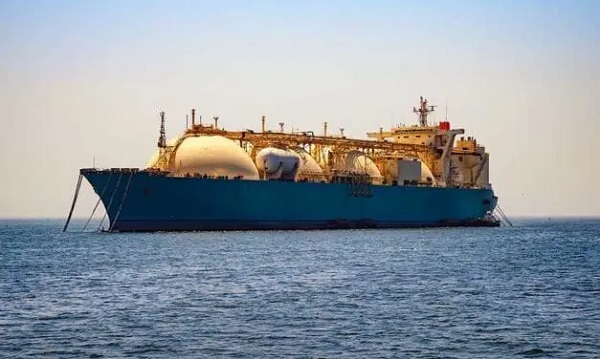International
Trudeau Vs. Modi in the Punjabi Gang Wars (I hope you’re sitting down)
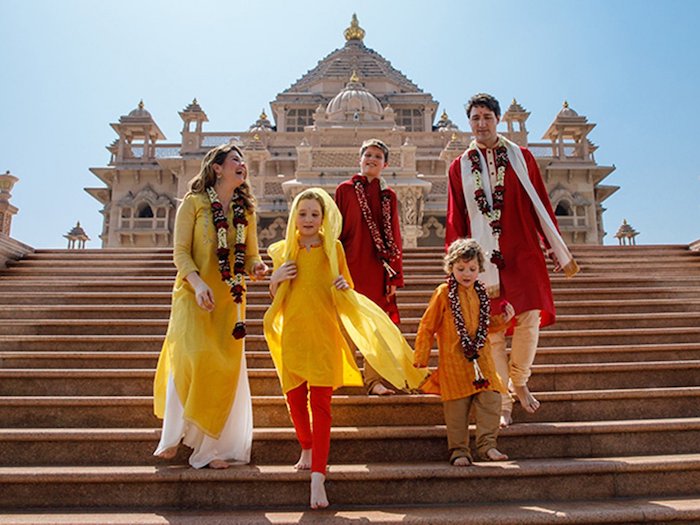
Fr0m The Real Story
By Terry Glavin
Also, it’s official: Samidoun is a terrorist organization and Khaled Barakat is officially a terrorist (thank you, America). This has been a hell of a week.
Spies in the House!
I’ve just come from the Montreal International Security Summit on China and the Indo-Pacific where I joined the Globe and Mail’s Bob Fife and Yaqiu Wang from Freedom House on a panel titled Decoding Transnational Repression and Foreign Influence Operations. CPAC recorded the summit. When the video clips are available I’ll post them here.
At the moment I’m in Ottawa, where all everybody seems to be talking about whether Prime Minister Justin Trudeau has finally and fatally beclowned himself by his melodramatic performance at Madame Justice Hogue’s Foreign Influence Inquiry hearings this past week.
If you’re interested in that sort of thing here’s some reading for when you’re done here: Trudeau’s interference allegations a dramatic act of self-preservation; Trudeau the Magnificent offers foreign-interference inquiry a master class in redirecting attention; Trudeau came to the foreign interference inquiry to hurl a grenade at his opponent.
On the allegation that Conservative leader Pierre Poilievre doesn’t want to know who’s among the compromised politicians identified in that secret report of the National Security and Intelligence Committee of Parliamentarians, come back when you’re done reading this newsletter and give a listen to former New Democratic Party leader Tom Mulcair, here.
As for Trudeau’s headline-grabbing assertion that the Conservatives have a serious foreign-influence problem that party leader Pierre Poilievre doesn’t want to talk about (Poilievre minced no words, calling Trudeau a liar and demanding that he name names), it will not come as news to Real Story subscribers or to readers acquainted with my contributions to the National Post that yes, the Conservatives have a problem.
It’s nothing like the Liberals’ circumstances of course, the main difference being that Trudeau’s Liberals don’t see Beijing’s lavish dotings to their electoral advantage in the federal polls of 2019 and 2021 as particularly unwelcome. Trudeau has never given any indication that he finds anything unseemly about the affections of Beijing’s Mandarin bloc donors and deal-makers in Canada.
Teenagers who aren’t even Canadian citizens or permanent residents, mobilized en masse to vote in Liberal Party candidacy and leadership races? Sure, let them in, Trudeau told the Hogue Commission: “Expanding the pool is also a way to try to engage future voters – those too young to vote or who are not yet Canadian citizens.”
The Conservatives have had their own entanglements. See: Conservatives, the Media and CCP Psy-Ops for a link-rich deep background piece on the whole thing. This was pretty important too: The Comprador in the Conservative leadership race keeps digging. Here’s the bedrock Jean Charest is about to hit.
Now that Canada’s diplomatic relations with India are broken …
There’s been so much going on in my “beat” this week that I need to try hard not to bog everyone down here. Below I’ll have some news for you that you’re unlikely to have come across anywhere else, related to my front page piece in the National Post, here.
Certain incendiary facts related to the Canada-India rumpus will have to wait for subsequent Real Story editions, but I do have some riveting details below about the sinister Indian intelligence-agency spymaster who Canada is determined to shold accountable for Hardeep Singh Nijjar’s murder in Surrey in June last year. Let’s just say he doesn’t fit the profile.
For now, riddle me this.
The crime gang that the RCMP says Delhi has contracted to carry out its dirty counter-terrorism operations against Khalistani extremists here in Canada is the Lawrence Bishnoi crime syndicate. “We believe that that group is connected to agents of the Government of India,” Assistant RCMP Commissioner Brigitte Gauvin said Monday.
But in India, law enforcement agencies are engaged in a long and drawn-out war with the Bishnoi gang, and Narendra Modi’s people say they’re furious that Canada isn’t helping. Ottawa won’t even respond to extradition requests. India’s National Investigation Agency says Bishnoi’s mobsters have been directly collaborating with the Khalistanis in various criminal enterprises, and they’ve been running extortion, kidnapping and gun-running operations in India from their safe havens in Canada.
The NIA prepared a charge sheet against several Bishnoi gangsters last year setting out their various ties to Babbar Khalsa International, a listed Khalistani terrorist organization in Canada. Talwinder Singh Parmar’s Babbar Khalsa organization was behind the murder of 329 passengers in the 1985 Air India atrocity, which was plotted and carried out in Canada under the noses of the RCMP.
Bishnoi has been in prison for a decade, but Indian police agencies say his operations across the Indian subcontinent are run from Canada by his chief lieutenant, the gangster Goldy Brar. It’s not that Bishnoi or Brar are devoted Khalistanis; they’re devoted to guns, money and power.
For as much background as you could possibly want on the suffering of the Sikhs and the harms done by Khalistani extremists over four decades in Canada and India, there’s quite a bit in the Real Story archives.
Of immediate relevance: Politics and The Punjabi Gangland Wars
Introductory dispatches: Why I know where the bodies are buried.
Part 1: Is India interfering in Canada’s affairs or is it the other way round?
Part 2: Did Ottawa Sabotage Modi’s Peace Talks?
Part 3: Conspiracy Theories, From Inside The House.
More recently: The worst of all possible worlds; Defiling the memory of dead Canadians; The worst mass murder in Canadian history.
 |
As you may have picked up from my tone. I’m not fond of the Khalistanis. They killed a friend of mine, among several thousand others. Follow those links above and you’ll understand.
Speaking of lurid Khalistani conspiracy theories and defiling the memory of the Air India dead, Liberal MP Sukh Dhaliwal is sponsoring a petition for an inquiry to entertain allegations that the Government of India itself blew up Air India Flight 182 to make Khalistani separatists look bad.
India Strikes Back: ‘You want names? Here are some names.’
Furious with Trudeau’s refusal to cooperate with its own counter-terrorism and organized crime investigations, this week India released the names of several Khalistanis and gangsters from a list of extradition requests that Ottawa has allegedly ignored.
The Bishnoi boss Goldy Brar is just one of them. Another, who I knew only by his alias “Sunny Toronto” until a couple of day ago, is reportedly a Canadian Border Services Agency official who lives in Abbotsford, B.C.; In the cause of discretion I’ll leave his name and address out of it for the time being.
Ottawa’s got the list now.
Ujjal Dosanjh, the former NDP B.C. premier and Liberal MP makes an astute observation: India-Canada relations are likely to remain broken until both Trudeau and Modi are gone. Ujjal and I go way back. The Khalistanis beat him within an inch of his life back in the 1980s.
Dosanjh is not impressed with the way Trudeau and his ministers are grandstanding about what Indian spies may or may not be doing in Canada: “Why do they have to say anything? Why, in particular, when they say nothing about Khalistani extremism in the first place?”
Speaking of the Trudeau government’s astonishing inattentiveness to fanatical extremists engaging in incitements and intimidations and coming and going from Canada as they please. . .
An excruciatingly embarassing Canadian moment.
I was airborne on the first leg of the long haul to the Montreal Summit when the news broke. CBC version: Canada lists pro-Palestinian group Samidoun as terrorist entity.
(I’m not going to bang on again about how describing Samidoun as “pro-Palestinian” in a headline is an unfortunate case of the news media once again conceding the specious claim Samidoun makes for itself against the case that it should have been outlawed years ago, so let’s just move on).
During a brief stopover in Vancouver I checked my phone, and holy cow. The emails, text messages, phone messages. . .then my phone started ringing. I’d turned down a half dozen interviews before the day was over.
It all began here, in April, 2022, with this investigation: The Curious Case of Khaled Barakat. It carried on until just a few days ago: Liberal failure to outlaw pro-terrorist group Samidoun is mind boggling
In between,there was a lot of this sort of thing: Why was man linked to terrorist group allowed to speak at city-owned Ottawa venue? Group banned in Germany gets carte blanche in Canada to glorify Hamas massacre, Finally, a terrorist sympathiser is arrested.
Necessary reading for anyone who wants the deep backstory: Samidoun: The Network.
I’m not due any great part of the credit for Samidoun’s ill luck, although I’d like think that all that research and all those interviews and investigations and fact-checking shifts for the National Post and the Ottawa Citizen and The Real Story going back two and a half years have amounted to something worthwhile.
Credit for Samidoun’s comeuppance this week genuinely belongs elsewhere. It belongs to the terrific research staff and the leadership of the Centre for Israel and Jewish Affairs, NGO Monitor, B’nai Brith, Friends of the Simon Wiesenthal Centre, the Raoul Wallenberg Centre for Human Rights . . . and in the House of Commons, Michael Chong, Shuv Majumdar, Kevin Vuong, Jamil Jivani, Anthony Housefather, and lately Pierre Poilievre.
I better stop there or it’ll be a long list and I’ll leave someone off and feel bad. Mostly I’d like to thank the paying subscribers to The Real Story, where I’ve done most of my work on this file. I wouldn’t have been able to do it without you, so take a bow.
The Real Story is made possible by paying subscribers who get all sorts of news backstories otherwise unavailable anywhere.
Why can’t we call this a proud Canadian moment?
Let me put it this way.
In effect as of last Friday, the U.S. Treasury Department has designated a federally-registered Canadian non-profit corporation a “sham charity” that has been covertly and openly serving a Foreign Terrorist Organization listed by the U.S. State Department, for years, specifically the Specially Designated Global Terrorist organization known as the Popular Front for the Liberation of Palestine.
Let that sink in. The Americans were forced to list one of Canada’s federally-registered non-profits as a terrorist entity. The PFLP has been on Canada’s own terrorist list all this time, too, and for several years, to no avail, Jewish advocacy organizations and Israeli diplomats had been hammering away to bring Samidoun to Ottawa’s attention.
Washington agreed to present this turn of events as a collaboration with Ottawa, and that’s fine. Diplomacy and all that. Canadian and American officials have been chatting for a year about how to get this mess sorted, but by last week the Americans were done waiting. Canada had to act swiftly.
Here’s something odd about Ottawa’s account: Samidoun meets the definition of a ‘terrorist group’ under Canada’s Criminal Code,” following Germany’s decision to do just that. Israel isn’t mentioned. Maybe that’s because Samidoun was registered with Corporations Canada as a non-profit corporation a mere three days after Israel listed Samidoun as a terrorist group and about two years after Ottawa was first warned that the PFLP was using Canada as a base of operations through Samidoun.
It was just as the financial, insurance and fundraising walls were closing in on the organization, globally, that Ottawa threw Samidoun a lifeline, on March 3, 2021.
Samidoun appears to remain a federally-registered non-profit, although its Corporations Canada page includes a note: “Government of Canada lists Samidoun as a terrorist entity.” At least as of Wednesday, Samidoun shows up on Public Safety Canada’s list of proscribed terrorist groups.
There’s an important distinction between the Americans’ listing announcement and Canada’s move. Here’s the U.S. Treasury Department: “Also designated today is Khaled Barakat, a member of the PFLP’s leadership. Together, Samidoun and Barakat play critical roles in external fundraising for the PFLP.” The Government of Canada is silent about Barakat.
A Palestinian from the West Bank town of Dahiyat al-Barid, Barakat is a Canadian citizen now. He first showed up in Canada at the University of British Columbia about 20 years ago. At some point along the way Barakat married the insufferable American immigrant Charlotte Kates, the Samidoun rally-organizer, international coordinator and slogan shouter arrested on hate-speech charges in April. Unaccountably, the B.C. Prosecution Service is still fussing and mulling and dragging its feet: no prosecution, six months on.
Barakat was last noticed in Beirut where he was livestreaming a conversation with Laith Marouf, the grossly antisemitic apologist for Syria’s Bashar Assad who famously siphoned hundreds of thousands of dollars in federal “anti-racism” and broadcasting consultation contracts before anyone in Ottawa even noticed.
Back to the India-Canada dyspepsia.
What does Justin Trudeau mean by proof?
I’m reluctant to include Monday’s extraordinary RCMP press conference among the several exercises in diversionary stage-management that Team Trudeau undertook this past week. But I do wonder.
The big headlines from that presser involved the RCMP’s conclusion that there are “links” between Indian diplomats and certain of the outrages that have occurred in a crime wave of extortion, arson, and strongarming in the South Asian community over the past year or so. The upshot is that Delhi is using the crime wave as cover to go after Khalistanis in Canada who are wanted India, and there are even “links tying agents of the Government of India to homicides.”
It’s certainly plausible. As Real Story subscribers will know, for quite some time now Narendra Modi’s government has been furious about the Trudeau government’s reluctance to tread on the toes of powerful Khalistani elements that have embedded themselves in Canada’s Sikh temples. It’s all “vote bank politics,” the Indians say.
The RCMP has concluded that Delhi’s overseas counter-terrorism efforts have come to include going after the gangs on their own turf according to gang rules. Delhi’s frustration involves at least two dozen high-profile criminals and Khalistanis in Canada who are wanted in India in several serious criminal and terrorism cases. India says they continue to run their gangland empires across the Indian subcontinent from their safe havens here in Canada.
Despite the impression Foreign Affairs Minister Melanie Joly set out to give in her account of the expulsion of India’s High Commissioner and five diplomats this week, RCMP Commissioner Mike Duheme and Assistant RCMP Commissioner Brigitte Gauvin said the bad behaviour they were on about in their press briefing had nothing to do with the murder of Hardeep Singh Nijjar.
And despite Joly’s version, India says its embassy and consular officials were withdrawn for their own safety because Trudeau himself, by his florid language and grandstanding, had put them at risk.
Canada’s foot-stamping, tantrum-having approach has been avoided by the Americans, who report that Indian officials are being perfectly cooperative in the case that caused Trudeau to stand up in the House of Commons last September to accuse Modi of killing a Canadian on Canadian soil. That wasn’t a stunt quite on the scale of lowering the flags on all government buildings quY
Unlike the case of Hardeep Singh Nijjar’s murder, the possibly-related plot to kill Nijjar’s Sikhs for Justice associate Gurpatwant Singh Pannun, foiled by the Federal Bureau of Investigations and the Drug Enforcement Agency, is coming along swimmingly.
The only fleeting evidence of an Indian government agent’s involvement in Nijjar’s murder comes from the transcipts the U.S. Department of Justice put together from wiretaps in the comically compromised murder-for-hire plot to kill Pannun – of the five people who were in on it, one was an FBI agent and another was a DEA informant.
Trudeau himself conceded to the Hogue Commission Tuesday that he had no proof of the Indian government’s involvement in the Nijjar murder, that he had only “intelligence” suggesting an Indian government connection. As you might imagine, the news media in India jumped on Trudeau’s deposition with glee.
The Department of Justice transcipt contains an exchange between the gangster Nikhil Gupta (now in U.S. custody) and his prospective hit man (who was in reality an FBI agent) in which Gupta describes Nijjar as one of several targets in an anti-Khalistani assassination scheme with big payouts.
The money man in the arrangement has turned out to be something rather less than a movie-script spy chief. Vikash Yadav, a disreputable former RAW officer, was himself arrested by Delhi police on extortion, attempted murder and kidnapping charges last December.
In an amateurish shakedown, Yadav and an accomplice beat a Lodhi Road businessman, relieved him of his cash, a gold chain and his rings, and left him at the side of the road. Yadav was arrested soon after by the Delhi police, but he was allowed out on bail four months later, in April, and hasn’t been seen since. The FBI has issued a warrant for his arrest, and the U.S. is expected to ask for his extradition if he turns up.
It’s astonishing that something so tawdry could lead to Canada’s worst fracture in diplomatic relations with a fellow democracy in living memory. But this is Justin Trudeau’s Canada, and this is how we roll.
By the time you read this I should be airborne again. I’m tired.
Not a paywall to be found in this whole newsletter. I can only blame myself, but if you’ve come this far, you really should take out a paid subscription, right?
Crime
Older man arrested at Kirk shooting admits to protecting real gunman
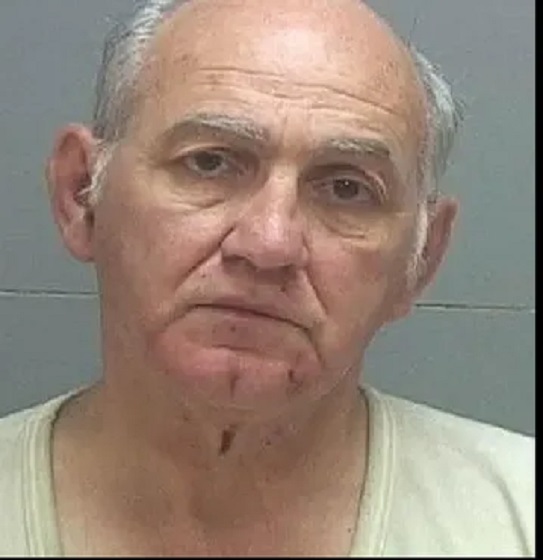
Quick Hit:
Chaos followed the assassination of Turning Point USA founder Charlie Kirk when police first arrested a 71-year-old man who confessed he was only trying to distract them from the real shooter.
Key Details:
- George Zinn, 71, was arrested after yelling, “I shot him, now shoot me!” but later admitted he was trying to mislead police.
- The real suspect, 22-year-old Tyler Robinson, was arrested Thursday night and identified publicly Friday morning.
- Zinn was charged with obstruction of justice, a second-degree felony, while Robinson faces charges as the alleged assassin.
Diving Deeper:
Charlie Kirk, one of the most prominent young leaders in the conservative movement, was assassinated in a brazen political attack that shocked supporters nationwide. Instead of immediately capturing the real suspect, police initially detained George Zinn, a man with a long history of causing disruptions at political events and protests.
Video of Zinn being handcuffed quickly spread, leading many to believe the threat had been neutralized. But Zinn’s arrest was a diversion — one that he admitted to orchestrating in order to shield the real shooter. He told police he wanted to “draw attention from the real shooter,” an action that delayed accountability and nearly allowed a dangerous criminal to evade justice longer.
Zinn’s background only adds to the picture. As the Salt Lake Tribune noted, he has a history of disrupting events — from political speeches to cultural gatherings like the Sundance Film Festival. His disruptive activism fits a pattern of left-wing agitators who thrive on chaos, and in this case, he played a role in protecting an assassin.
Duane Rolheiser
Unite the Kingdom Rally: demonstrators take to the streets in historical numbers to demand end to mass migration in the UK

If you haven’t been following the emergence of controversial UK journalist Tommy Robinson, you should try not to skip ahead to the aerial shot of what is likely the largest rally in modern UK history.
To even begin to understand the scope of the passion and to comprehend the numbers of English people who attended the “Unite the Kingdom Rally” in London on Saturday, some background information will be very helpful.
Like many western nations, Britain has seen an historical influx of immigrants. With millions of new immigrants competing for housing, medical care, and government resources, very serious issues are bound to arise. It makes you wonder how a government could or why a government would allow this to happen.
The following video shows very well what has taken place in terms of how many people have arrived in recent years, and who they are.
As the presenter showed, most of these migrants are from non European Union nations. Many are from Muslim nations. That means even in a highly multi-cultural nation like the UK, towns and cities are facing the cultural challenges of suddenly hosting a significant minority of young Muslim men.
Enter the most controversial political figure in Britain, Tommy Robinson. Robinson’s hometown of Luton, Bedfordshire, England, was one of the first communities in the UK to see a significant percentage of Muslim population. According to Robinson he noticed his childhood schoolyard and lunchrooms were divided into two separate groups, the traditional English (white Europeans, people from India, and the Caribbean, etc) and the Muslims.
As he got older Robinson claims he started to see a number of young girls being ‘recruited’ by older Muslim men into the drug culture, and becoming sexual partners for multiple Muslim men, including prominent members of the community. When Robinson started to speak out publicly he was hit with a wall of official denials. He would go on to challenge the authorities for years, becoming a citizen journalist and eventually an enemy of the state. If you watch his documentary series called The Rape of Britain you will understand just what he’s been claiming for about 15 years.
Fast forward to September of 2025. The streets of many cities in the UK resemble Robinson’s hometown of Luton. Robinson’s followers have multiplied from hundreds to thousands, to potentially millions. The situation has caught the attention of President Donald Trump and X owner Elon Musk. On the weekend, untold thousands of Britons took to the streets of London for Robinson’s “Unite the Kingdom March”, a massive rally for free speech and British identity.
The guardian reported "110k" at our London rally today.
Yet, literally had their own helicopter showing the millions of patriots 🤡
Legacy media proving again they'll just lie to your face for their own agenda.
This is why nobody trusts them.
We are the media now. pic.twitter.com/s0yOh2NEfe
— Tommy Robinson 🇬🇧 (@TRobinsonNewEra) September 13, 2025
Without watching Robinson’s documentaries and journalism it can be difficult to understand the passion of his presentation from Saturday. The growing thousands and millions in the UK understand. Those who do not are very likely swayed by the media and government establishment who are trying desperately and less successfully by the day to brand Robinson as a Far Right racist.
NOW: Tommy Robinson's full speech at his 'Unite the Kingdom' rally in London, England. pic.twitter.com/lsNLGxcwJs
— Efrain Flores Monsanto 🇨🇦🚛 (@efloresmonsanto) September 13, 2025
Tommy Robinson appeared to be losing the battle for public opinion until Elon Musk stepped in. Robinson was in jail last January when Musk took note and used his incredible social media reach to bring Robinson’s struggle to a much wider audience.
Free Tommy Robinson!@TRobinsonNewEra
— Elon Musk (@elonmusk) January 2, 2025
The owner of the X platform addressed the crowd via video link. In the days following the public execution of Charlie Kirk, Musk condemned the left as “the party of murder” and accused Britain’s political establishment of weaponizing mass migration to reshape the electorate.
NEW: Elon Musk’s new interview with Tommy Robinson, where he virtually joined the Uniting the Kingdom Rally today 🇬🇧
— DogeDesigner (@cb_doge) September 13, 2025
Prime Minister Keir Starmer was quick to denounce the march while Reform UK leader Nigel Farage said the vast majority of demonstrators are “good, ordinary decent people” voicing legitimate concerns about mass migration and the safety of British streets. At least 25 arrests were made Saturday and police say four police officers were seriously injured.
As for Tommy Robinson, he likely over achieved any expectations he had for this rally and now both he and the UK authorities are planning their next moves.
-

 Business2 days ago
Business2 days agoIt’s time to finally free the beer
-

 Business2 days ago
Business2 days agoCarney Admits Deficit Will Top $61.9 Billion, Unveils New Housing Bureaucracy
-

 Artificial Intelligence2 days ago
Artificial Intelligence2 days agoWhat are data centers and why do they matter?
-
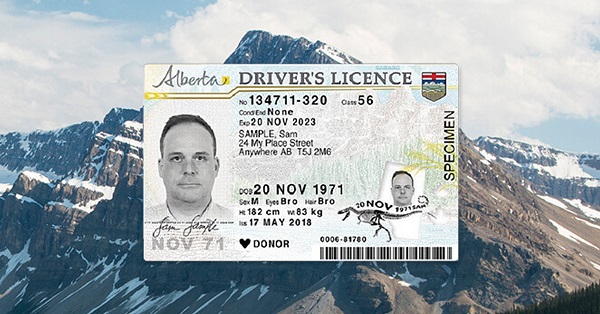
 Alberta1 day ago
Alberta1 day agoAlberta first to add citizenship to licenses
-
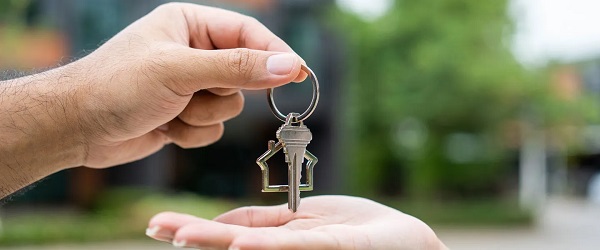
 Business1 day ago
Business1 day agoCarney government’s housing GST rebate doesn’t go far enough
-

 Alberta1 day ago
Alberta1 day agoBreak the Fences, Keep the Frontier
-

 Business1 day ago
Business1 day agoCarney’s Ethics Test: Opposition MP’s To Challenge Prime Minister’s Financial Ties to China
-
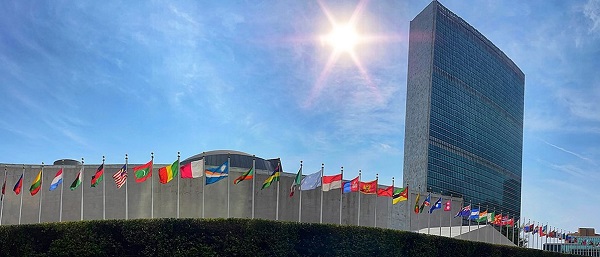
 Daily Caller2 days ago
Daily Caller2 days agoTrump Admin To Push UN Overhaul Of ‘Haphazard And Chaotic’ Refugee Policy







